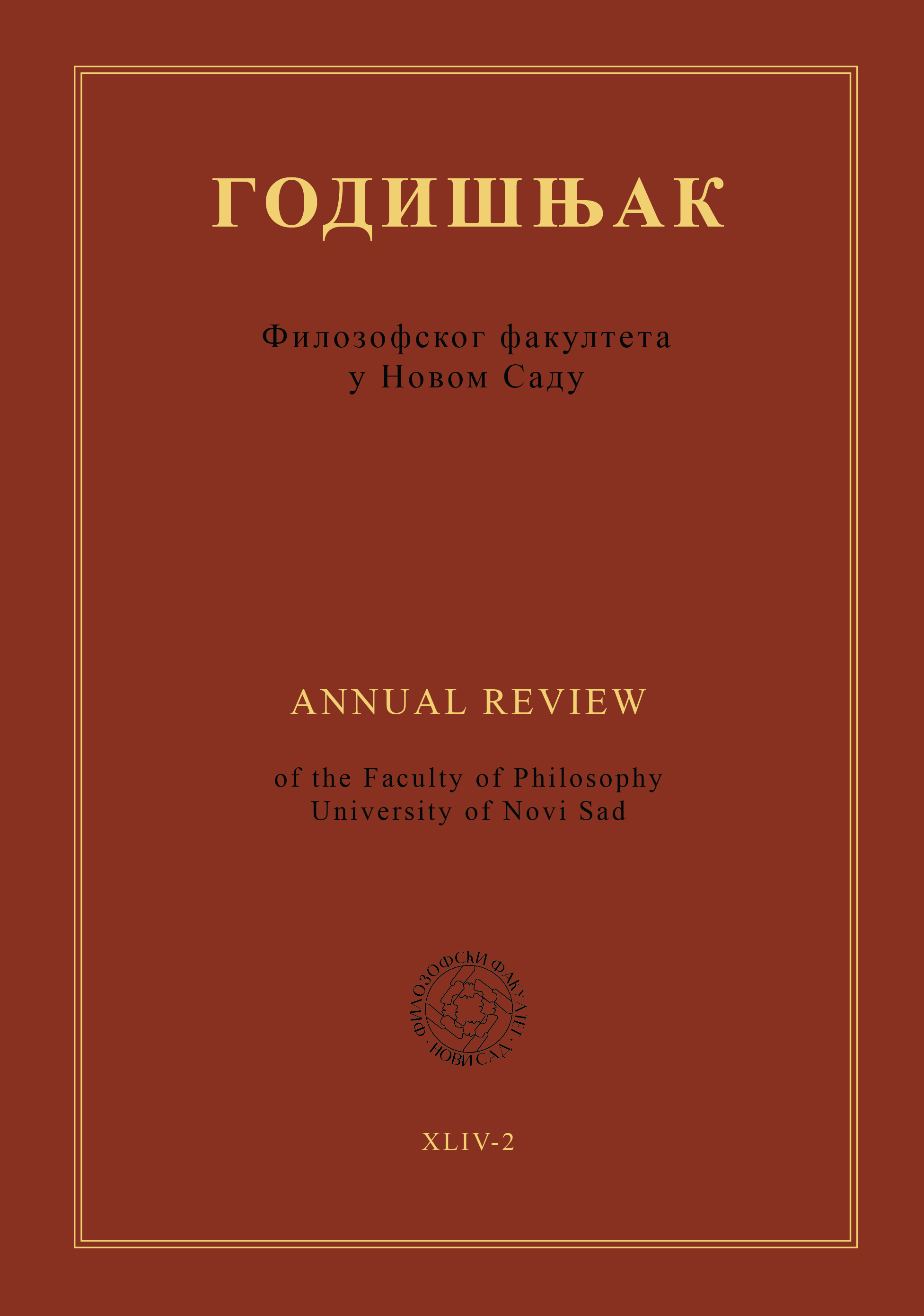INDEFINITE PRONOUN ONE IN ACADEMIC WRITING OF NON-NATIVE SPEAKERS OF ENGLISH
Main Article Content
Abstract
When writing academic texts, whether they are shorter essays or longer papers, non-native speakers of English tend to mix formal, neutral and informal style, which testifies of the gap between their linguistic competence, which is in most cases fairly high, and discourse competence, which is evidently low as they do not abide by the norms of English academic style. For that reason, this paper focuses on one aspect of style, namely the use of the indefinite pronoun one in students’ essays in order to explore if students are consistent in the use of this pronoun, which signals formal written academic style. The research has relied on the analysis of a corpus of argumentative essays written by Serbian students of English language and literature who study at four university centres (East Sarajevo, Banja Luka, Belgrade and Novi Sad). The corpus consists of 325 essays with a total of cca. 70,000 words and it was analyzed in two steps: firstly, the whole corpus was analyzed for concordances of the words one, one’s and oneself, and then the concordances were manually filtered whereby all cases where these three forms of the indefinite pronoun one did not have general reference were rejected. The remaining essays had around 300 occurrences of the three forms of the indefinite pronoun one, which was then analyzed in more detail in order to determine the contexts in which they occurred and in order to establish other forms of personal metadiscourse present in their vicinity. This qualitative aspect of corpus analysis has given the following results: (1) around half of the essays have just one occurrence of the pronoun one; (2) the remaining essays demonstrate a clear tendency of a mixture of formal and neutral academic styles, because students used personal pronouns we or you either in the same sentence or in the preceding or following sentences. Very few essays in the corpus have shown consistent use of the indefinite pronoun one throughout the text. These results can be understood as a signal that students’ discourse competence is fairly low and that they do not use either the formal or the neutral style consistently, but instead fluctuate between these two, producing texts that do not abide by the rules of academic writing in English. In addition, this can be used as an indicator of what can be improved in an academic course which teaches academic writing in English so that students avoid making such mistakes in future.
Downloads
Metrics
No metrics found.
Article Details
References
Biber, D. – Johansson, S. – Leech, G. – Conrad, S. & Finegan, E. (1999). Longman Grammar of Spoken and Written English. Harlow: Longman.
Huddleston, R., & Pullum, G. (2002). The Cambridge Grammar of the English Language. Cambridge: Cambridge University Press.
Hyland, K. (1998). Persuasion and Context: The Pragmatics of Academic Metadiscourse. Journal of Pragmatics, 30, 437–455.
Lakshmanan, U. & Selinker, L. (2001). Analyzing Interlanguage: How Do We Know What Learners Know? Second Language Research, 17(4), 393–420.
Marković, J. (2017). Lični metadiskurs u pisanju kod izvornih i neizvornih govornika engleskog jezika. Filolog, VIII, 44–60.
Marković, J. (2018). Upotrebe glagola make u pisanju na engleskom jeziku kao stranom kod izvornih govornika srpskog jezika (korpusnolingvistička analiza). Zbornik Matice srpske za filologiju i lingvistiku, 61(1), 165–180.
Marković, J. (2019). Kroz prizmu kontrastivne analize međujezika. Istočno Sarajevo: Filozofski fakultet.
Quirk, R. – Greenbaum, S. – Leech, G. & Svartvik, J. (1991). A Comprehensive Grammar of the English Language. London and New York: Longman.
Selinker, L. (1972). Interlanguage. International Review of Applied Linguistics, 10, 209–231.
Vassileva, I. (1998). Who Am I/ Who Are We in Academic Writing? International Journal of Applied Linguistics, 8(2), 163–190.




